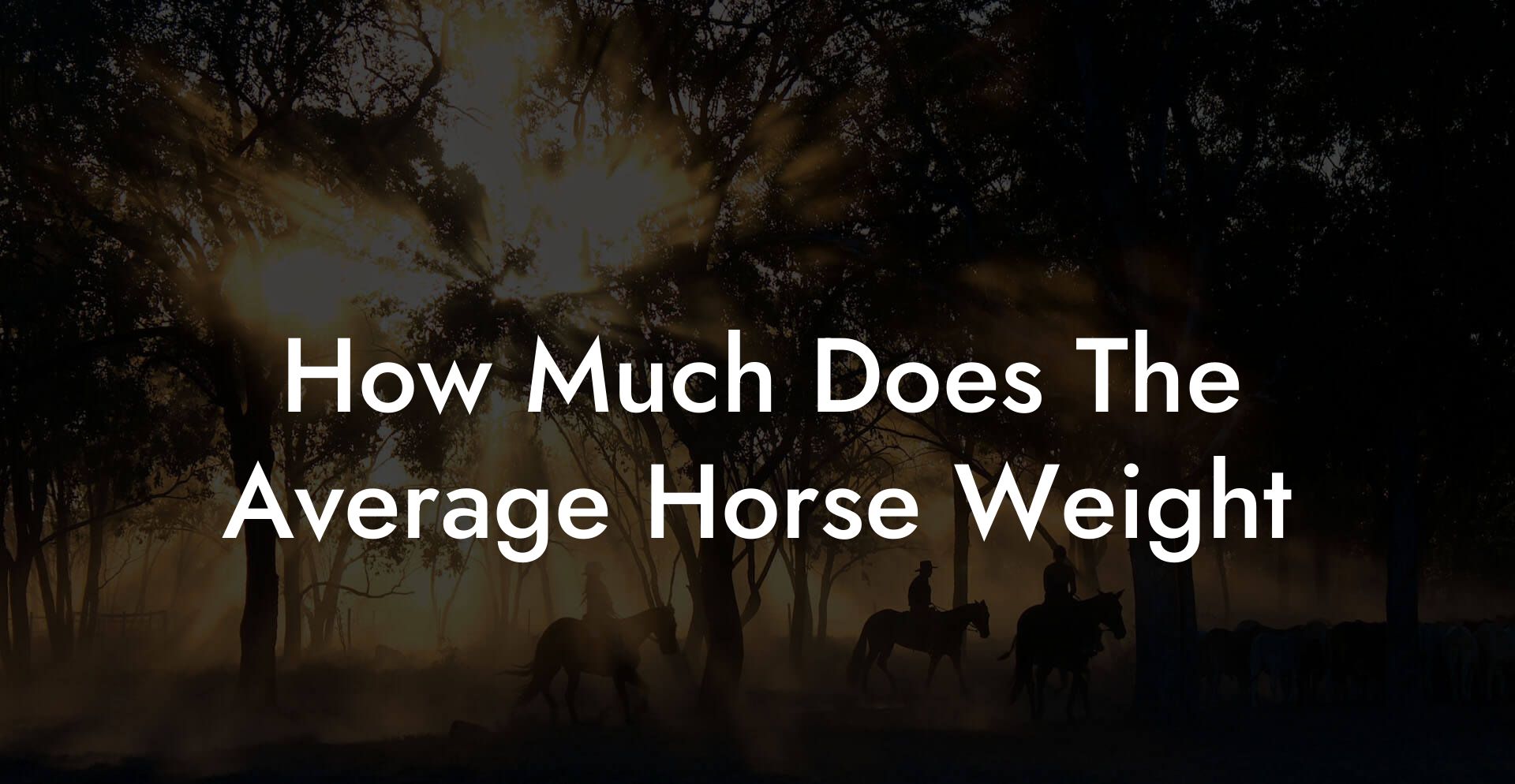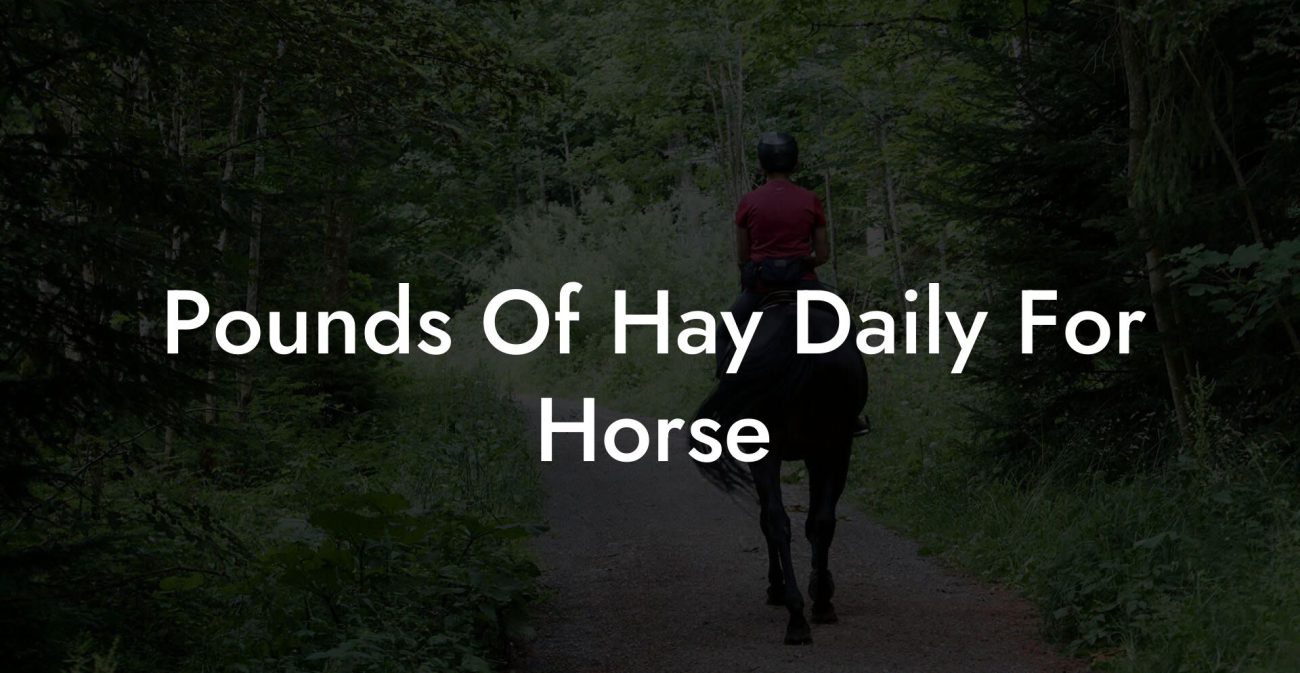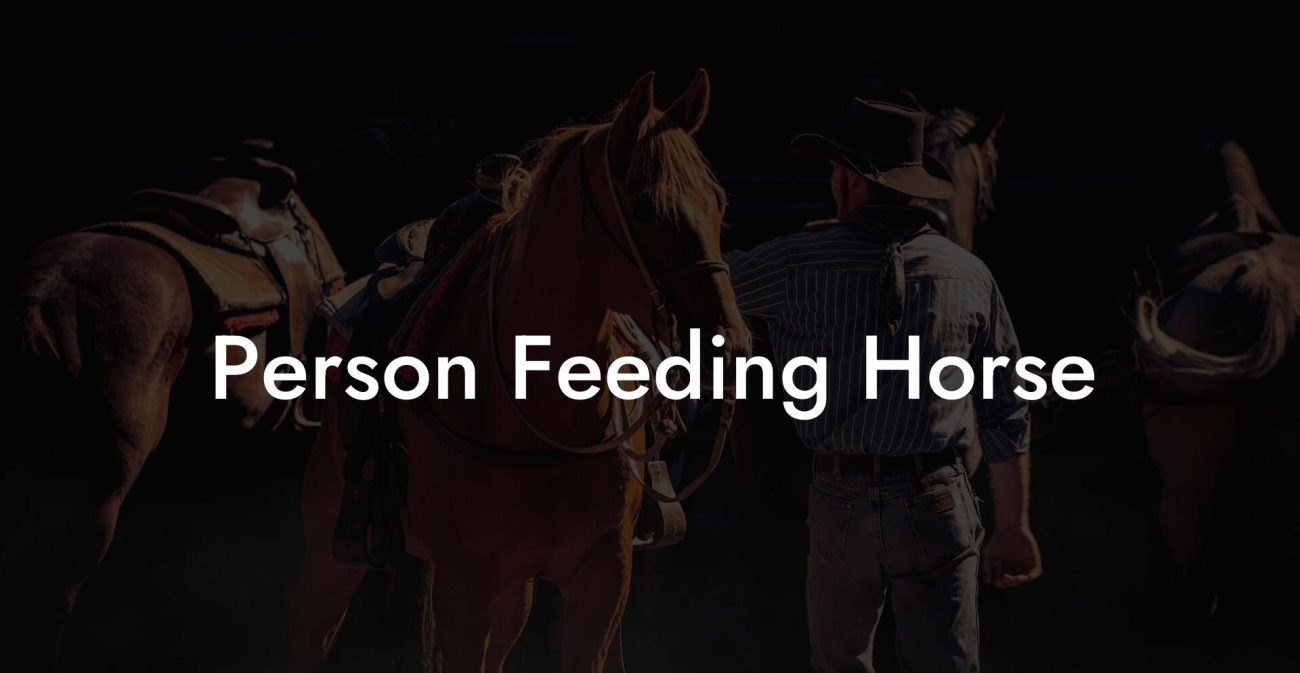Have you ever wondered how much a horse weighs? Understanding the average weight of a horse is not only a fascinating fact, but it's also essential for horse owners in terms of the care, feeding, and training of these majestic animals. In this article, we'll explore the factors affecting the weight of a horse, as well as how to determine how much your horse weighs. Read on to acquire a deeper knowledge of horse weight and how it relates to their overall health and well-being.
How Much Does The Average Horse Weight Table of Contents
Factors Influencing Horse Weight
Various factors affect the weight of a horse, including:
Breed
Different breeds of horses have distinct average weights, primarily because of variations in body type and size:
- Lightweight horse breeds, such as Arabians or Thoroughbreds, can weigh between 900-1,000 pounds (400-450 kilograms).
- Heavyweight horse breeds, such as Draft horses or Irish Draughts, can weigh between 1,700-2,500 pounds (772-1,134 kilograms).
- Pony breeds, such as Shetlands or Welsh Ponies, can weigh between 350-900 pounds (160-409 kilograms).
Age
A horse's weight can change throughout their life due to growth and changes in body composition. Adult horses tend to be heavier than young horses, while senior horses lose weight as their overall muscle mass decreases.
Sex
Male horses (stallions) typically weigh more than females (mares) of the same breed because of greater muscle mass. Neutered male horses (geldings) fall somewhere in between, as they usually have less muscle mass than stallions but more than mares.
Body Condition and Overall Health
A horse's body condition plays a significant role in their weight. An underweight horse may have low stores of fat and muscle more, while an overweight horse may have excessive fat deposits. A horse's overall health can also impact weight, including issues such as illness, parasites, or injury.
How to Determine Your Horse's Weight
While it's useful to know the average weight ranges of different breeds, knowing your horse's specific weight is important for effective care and management. There are several methods to determine a horse's weight, such as:
Weighing on a Large Animal Scale
Though not always accessible, the most accurate method of determining horse weight is by using a large animal scale. These scales can be found at veterinary clinics, equine hospitals, or large boarding facilities.
Weight Tapes
Weight tapes are specially designed measuring tapes to estimate your horse's weight. To use a weight tape, wrap it around the horse's heart girth (the thickest part of the chest, just behind the front legs) and convert the measurement to pounds or kilograms using the tape's calibration.
Body Weight Formulas
You can estimate your horse's weight using various formulas that take measurements of the horse's heart girth and body length. Here's an example of the popular horse weight formula:
Weight = (Heart Girth^2 x Body Length) ÷ 330 in pounds
or
Weight = (Heart Girth^2 x Body Length) ÷ 1,195 in kilograms
How Much Does The Average Horse Weight Example:
Imagine you own a Thoroughbred mare that is 7 years old and appears to be in good body condition. Based on the breed and gender of your horse, you would expect her to weigh in the 900-1,000 pounds (400-450 kilograms) range. For a more accurate weight estimate, you have chosen to use the equine weight formula.
You measure her heart girth to be 74 inches (188 centimeters) and body length to be 78 inches (198 centimeters). Plugging these numbers into the formula, her estimated weight is:
Weight = (74^2 x 78) ÷ 330 = 1,000 pounds
or
Weight = (188^2 x 198) ÷ 1,195 = 453 kilograms
Understanding the average weight of a horse is crucial when it comes to optimal care, feeding, and training practices. By learning the factors affecting horse weight and how to determine the weight of your own horse, you'll be better equipped to provide the best possible care for your equine companion.
We hope you found this article helpful! If you have further questions about horse care or want to explore more about the wonderful world of horse ownership, be sure to check out the other informative guides on How to Own a Horse. Also, don't hesitate to share this article with other horse enthusiasts to expand their knowledge and promote responsible horse ownership.













